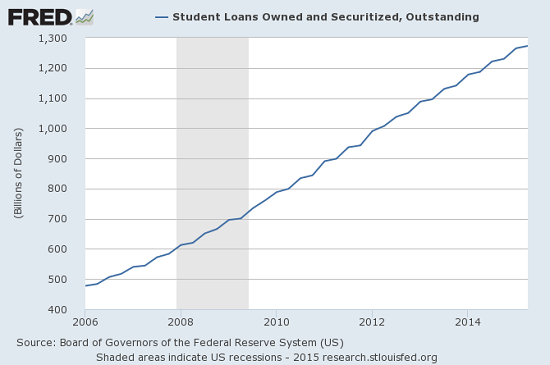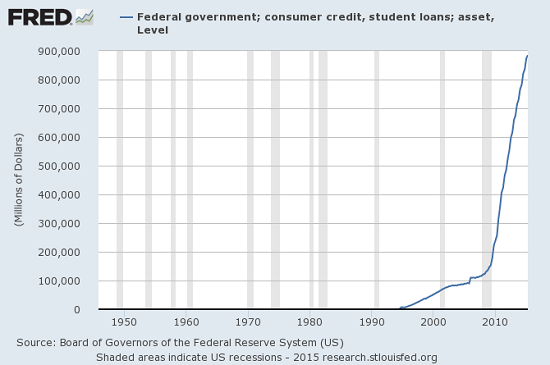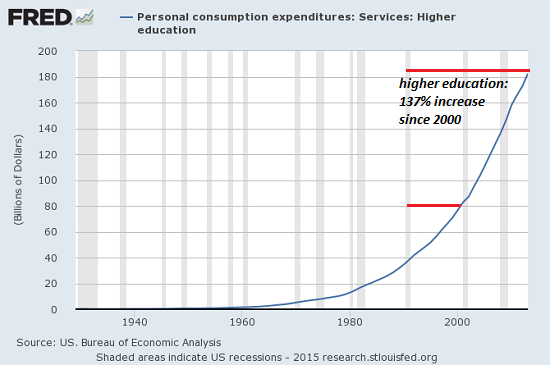A system that piles debt on students in exchange for a marginal or even zero-return on their investment is morally and financially bankrupt.
Every once in a while you run across an insider’s narrative of a corrupt, morally bankrupt sector that absolutely nails the sector’s terminal rot. Here is that nails-it narrative for higher education: Pass, Fail: An inside look at the retail scam known as the modern university.
Here are excerpts of the article, which was published in Canada but is equally applicable to higher education in the U.S.:
A university degree, after all, is a credential crucial for economic success. At least, that’s what we’re told. But as with all such credentials—those sought for the ends they promise rather than the knowledge they represent—the trick is to get them cheaply, quickly, and with as little effort as possible. My students’ disaffection is the real face of this ambition.
I teach mostly bored youth who find themselves doing something they neither value nor desire—and, in some cases, are simply not equipped for—in order to achieve an outcome they are repeatedly warned is essential to their survival. What a dreadful trap.
One in particular matches perfectly with the type of change I’ve observed on my watch: the eradication of content from the classroom.
All efforts to create the illusion of academic content are acceptable so long as they are entertaining, and successful participation requires no real effort and no real accountability.
Remove your professor hat for a moment and students will speak frankly. They will tell you that they don’t read because they don’t have to. They can get an A without ever opening a book.
But don’t worry—you won’t go bust because of this failure, not in the modern university. So long as your class is popular and fun, you’ll be favoured by the administration and probably receive a teaching award. This, even though your students will leave your class in worse condition than they entered it, because you will have pandered to their basest inclinations while leaving their real intellectual and moral needs unmet.
There is no clearer example of administrators’ contempt for faculty. But there is also no clearer example of their contempt for students.
As money is siphoned from academic programs through attrition, it is channelled into a host of middle-management positions.
From 1979 to 2014, central administration and staff ballooned by three and a half times, while the size of the faculty merely doubled.
Parents, students, and governments keep supplying them with capital, assuming there will be a genuine return on investment. But since the institution no longer produces anything, no such return is forthcoming.
Spending on the student services sector in Canadian universities increased an incredible six-fold between 1979 and 2014.
The student services cabal is no longer there to support faculty in their work of educating students “but to compete with them to define the student experience.”
Insiders are quiet after they read this, because they know it’s true.
The financial burden created by the higher education cartel is immense and expanding:

To mask the enormity of the sums squandered on “education” that has little measurable results, the federal government has purchased most of the debt:

No inflation here–just a 137% increase in 15 years:

A system that piles debt on students in exchange for a marginal or even zero-return on their investment is morally and financially bankrupt.
We can do better and must do better, which is the subject of my book The Nearly Free University and the Emerging Economy.





0 comments:
Post a Comment